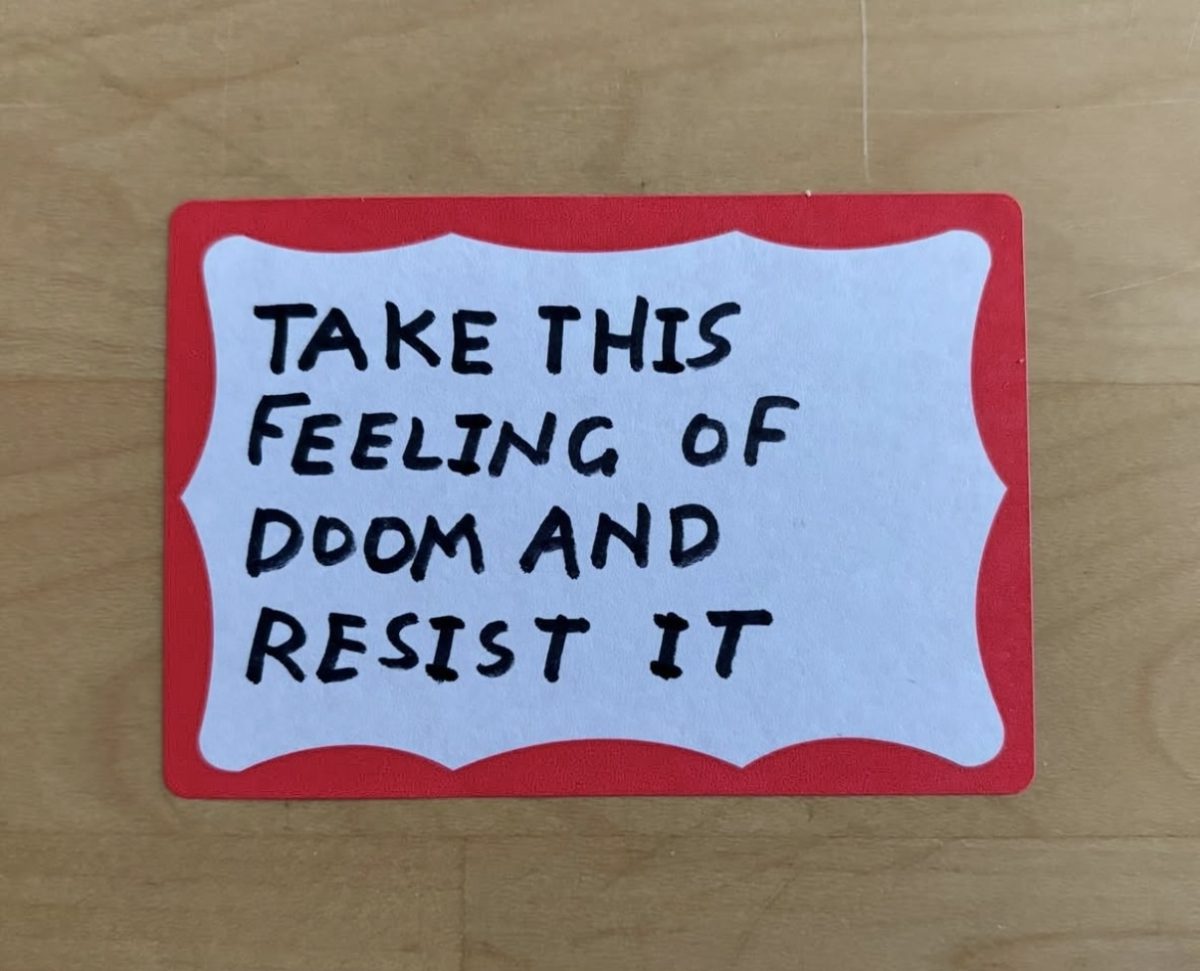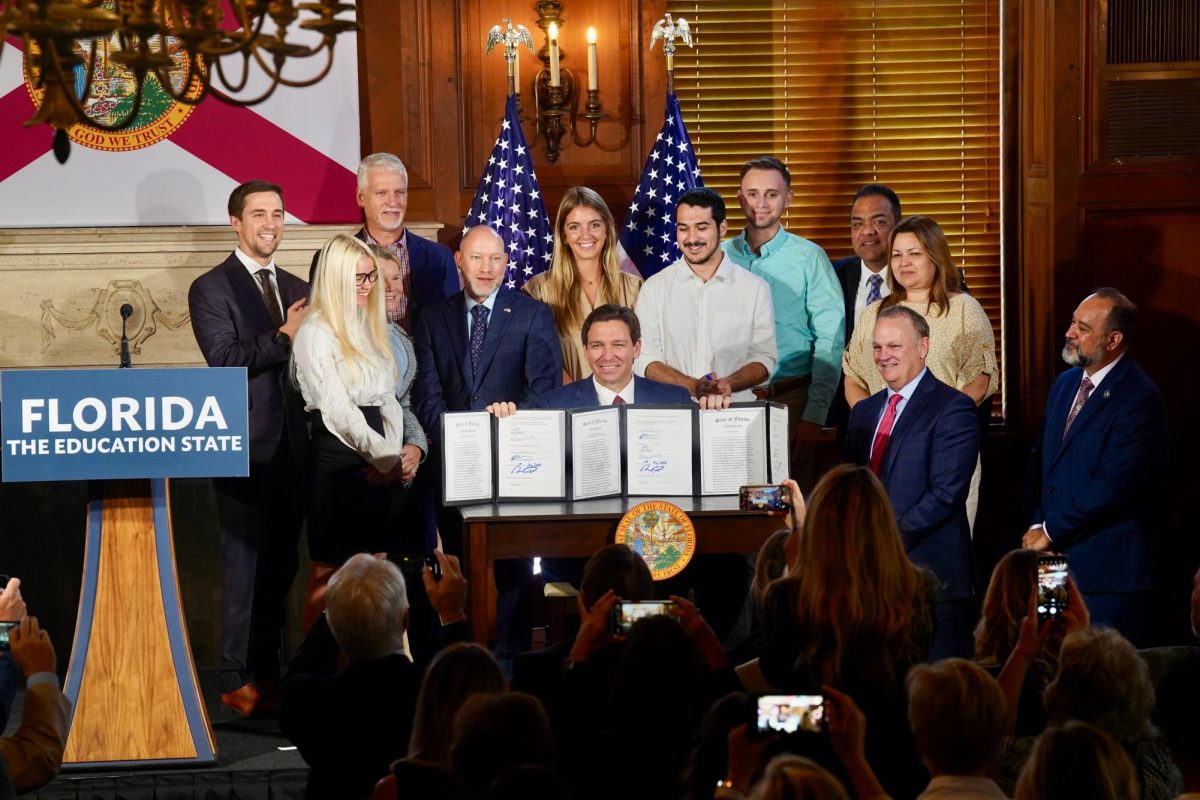
The University’s department of Philosophy and Religious Studies had this to say in response to Bart Greene’s Jan. 9th letter to the editor regarding political correctness on university campuses:
We, the faculty of the Department of Philosophy and Religious Studies, wish to respond to Bart Greene’s January 9th Letter to the Editor in the Spinnaker concerning our statement of support for all members of the UNF community posted on our department website.
Mr. Greene’s main criticism is that political correctness “is destroying American universities” and our statement “reeks” of political correctness. We have three responses to this main concern:
First, the letter fails to adhere to common standards for intellectual rigor and charity. It does not define its key terms (What exactly is “political correctness”?). It does not explain its main claims (What makes our choice of terms “politically correct”? More importantly, why is “political correctness” negative?) It does not provide evidence for its central claims (How, specifically, is “political correctness” destroying our university?). As Mr. Greene himself notes, we can only properly evaluate claims based on evidence and the absence of evidence undermines an argumentative claim.
Clear and accurate definitions, adequate explanation, and relevant evidence are core components of good reasoning. As such, they are as central to the intellectual practices of inquisitive, critical, and charitable thought that we seek to teach in our classes.
Good reasoning also requires both civility and care with language. In his letter, Mr. Greene resorts to loaded language (which is considered a logical fallacy, an error): we are “wringing [our] hands,” we use “insipid euphemisms” and our statement is an “overwrought manifesto.” Characterizing views with which one disagrees in this way is inflammatory and unhelpful; it distracts from the sound reasoning necessary to evaluate a claim.
Mr. Greene asks for evidence of incidents of hate and bigotry connected with the presidential election. Our statement was an expression of our values and of support. Evidence is not usually required for such expressions, however, we certainly have reasons for holding our values and for expressing them unequivocally now. We cannot cite all the incidents of hate and bigotry reported in the wake of the 2016 election, however we do know, for instance, that the NYC police department has reported a 31% increase in reported hate crimes in 2016. Nationwide, the FBI’s national report for 2016 will not be available until next November, but civil rights groups tracking such incidents report a post-election surge in hate crimes. We know, moreover, that this climate has provoked concern for many members of the UNF community and our intent is to stand with them in solidarity.
Second, Mr. Greene’s letter is unclear about what it means to be politically correct. The assumption is that political correctness is the practice of policing others’ language use because of an oversensitivity to the feelings of particular groups, with the consequence of diverting attention from the point being made or closing off avenues of discussion. To be politically correct is, in essence, to enforce dogmatic thinking, a rigid adherence to ideological positions without space for reflective and well-reasoned discussion of the issues at stake. Yet, rather than opening up a conversation with us, Mr. Greene condemns our word choice and suggests that students might want to avoid our courses. In this way, his letter is itself an example of political correctness.
He objects to our word choice (“undocumented persons,” “differently abled,” “LBGTQ persons”) because they are different from his preferred terms (“illegal aliens,” “disabled”). He asserts that they aim to “distort reality, not to reveal it” but fails to explain how this is the case. The different terms certainly express different political stances on immigration policy, for instance, but claiming that one term is a neutral reflection of reality and the other is a distorted demonstration of political correctness is disingenuous; each express different sets of beliefs and values. We chose the terms that we thought best expressed solidarity with members of the UNF and were respectful and affirmative toward all. We believe these values are necessary to foster a community in which learning can occur. Since we value open, honest, and reflective discussion of all issues, contentious or not, we welcome conversations on issues such as these, both in and out of our classrooms. We hope that all members of our community would choose such open discussion rather than judgments made without discussion.
Third, in suggesting that there is a clear and mostly simple distinction between speech and action, Mr. Greene oversimplifies the complicated relationship between the two. A physical act of violence is assuredly different from words that do harm. Yet, speech can do things. Indeed, as British philosopher J.L. Austin proposed, speech can function as an act. The classic example is marriage vows, which forge a union between two people, but the making of a promise is a more everyday example: in promising, one does more than make a statement; one conveys one’s intent to perform a particular action (whatever one promises) in the future.
Hate speech is speech that vilifies, disparages, and threatens people on the basis of their membership in a recognizable social group. US constitutional law permits prosecution of hate speech only when it is likely to incite a reasonable person to violence. Yet what law permits and what ethics requires are not always equivalent. Hate speech has an effect on those at whom it is directed: it degrades and demeans, and so makes those who are targeted feel as if they are not safe, they do not belong, and their voices do not matter and will not be heard. It can impede their participation in and contribution to an intellectual community. In this context, sensitivity to word choice and language use is not mere political correctness, but rather is part of an effort to ensure equality and inclusivity in our intellectual community. Such inclusivity is necessary in order for a truly free exchange of ideas and views to occur. Actions that involve the derogatory use of language, such as a racially charged drawing left on a whiteboard in the UNF library, reduce the likelihood that such free exchange can flourish and all can thrive intellectually.
Signed, The Faculty of the Department of Philosophy and Religious Studies
—
If you’d like to respond to this opinion or have a viewpoint on something else, send a letter to editor@unfspinnaker.com.












Wes Adams | Jan 16, 2017 at 3:38 pm
Proud to see the Philosophy Dept delivering a response that clearly speaks to the importance of honoring everyone in our community. Proud to be a UNF Philosophy alumni!
J Scott Barnard | Jan 16, 2017 at 9:51 am
Since most readers will probably not get past the first few paragraphs of this lengthy piece, what with our lack of “intellectual rigor” and all, I’d suggest you read a better response from John Aloszka. (https://unfspinnaker.com/opinion-being-politically-correct-is-just-correct/)